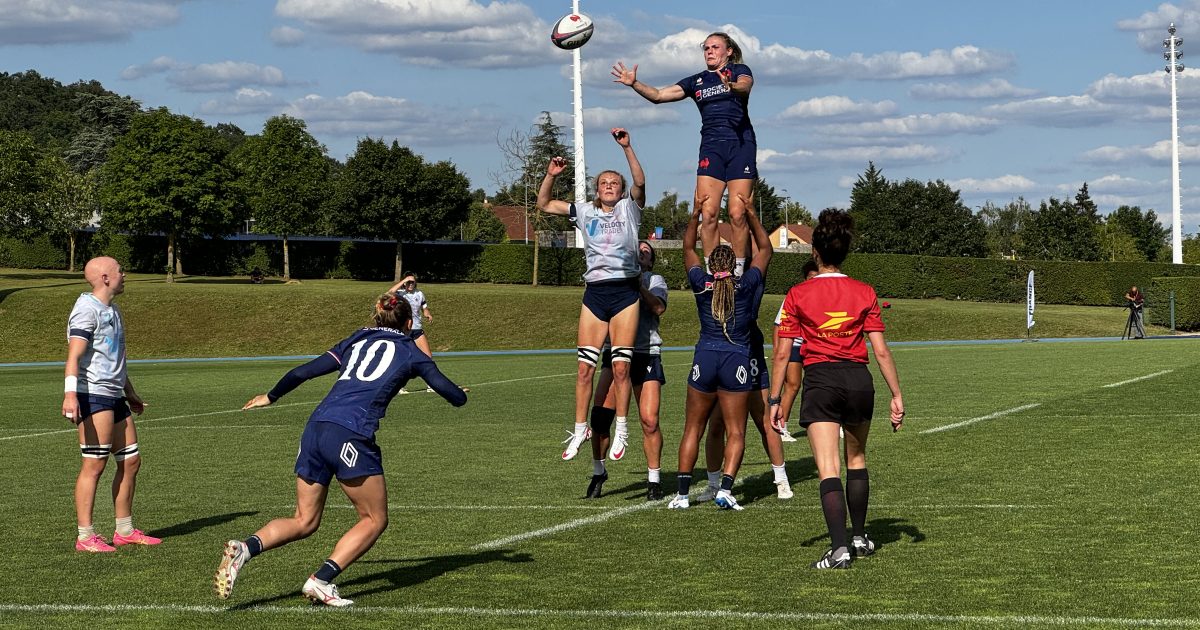Juste avant les JO, la France avait réservé son dernier entraînement au Canada

A dix jours du coup d’envoi du tournoi olympique, France et Canada se retrouvaient à Marcoussis pour un entraînement commun.
La scène remonte au mercredi 17 juillet au centre national du rugby à Marcoussis. Sous un gros soleil, la France a convié l’équipe du Canada de Jack Hanratty à un ultime entraînement en commun. Le soir même le groupe France se séparera et se retrouvera au début de la semaine suivante avant de faire son entrée dans le village olympique.
Pour le coach David Courteix et les joueuses, cette ultime confrontation reste intense et très utile.
« Ça ressemble aux rencontres que l’on fait avant. Il y a suffisamment d’engagement pour que ça donne du sens à ce qu’on fait », confie alors David Courteix à RugbyPass. « J’ai bien aimé les attitudes, j’ai bien aimé ce que j’ai vu. Quand on fait montre de maîtrise au rugby c’est quand même un signe. La maîtrise s’exprime par l’adaptation. »
A ce moment-là, personne ne sait encore avec certitude que les deux équipes se retrouveront quelques jours plus tard au Stade de France en quart de finale du tournoi olympique de Paris 2024. Un match couperet par excellence qui poursuivra tout rêve olympique ou y mettra fin de manière cruelle.
Pour se qualifier pour cette rencontre, Séraphine Okemba a planté quatre essais aux Américaines, devenant la troisième joueuse à inscrire quatre essais lors d’un match à Paris 2024, après l’Australienne Maddison Levi et la Néo-Zélandaise Michaela Blyde.
« Ce qui est bien avec le Canada c’est que c’est une équipe qui sait nous mettre en difficulté », répondait-elle à RugbyPass après un entraînement qui ne se voulait pas à haute intensité mais qui restait très physique quand même.
« On reste dans l’optique d’un entrainement, comme ça on voit tous les petits repères. Là, c’est gagner tout ce qu’on peut gagner : de la confiance, quelques petits repères. »
Cette ultime confrontation a posé les bases du futur quart de finale prévu à 22h le lundi 29 juillet.
Des billets pour la Coupe du Monde de Rugby féminine 2025 sont de nouveau en vente à partir de 10£ pour les adultes et 5£ pour les enfants. Foncez !





































